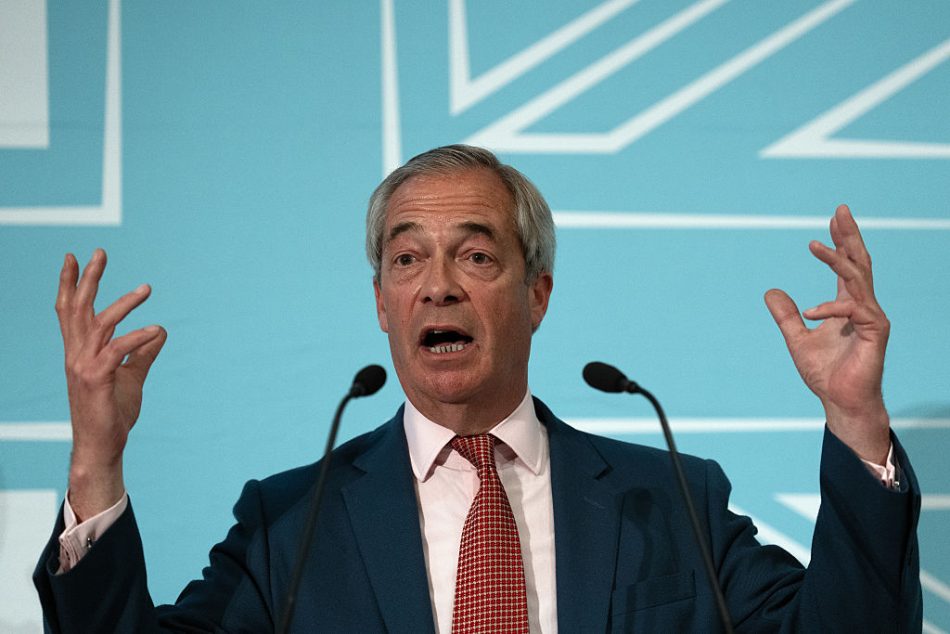At 9 a.m on Monday morning, Nigel Farage will march into a central London venue to make one of his most audacious speeches yet. Since returning as leader of Reform UK last May, he has trodden carefully when it comes to policy. Farage quickly canned the party’s manifesto after the election, preferring to focus on a few key areas: lifting the two-child benefit cap, hiking the annual income tax personal allowance to £20,000, cutting council waste, abolishing Net Zero and renationalising steel.
But his next move is more original in its thinking. Farage will announce a new policy for ‘non-doms’: British residents whose permanent home for tax purposes is outside the UK. Rachel Reeves’ first Budget abolished this status in April, claiming it would raise £2.7bn a year by 2029. Yet amid a wave of reports about a ‘flight of the rich’, Farage senses an opportunity to try to retain such wealth in the UK while making a political pitch to the poorest in society too.
He will float a new one-off £250,000 ‘landing fee’ for the super-rich, renewed every ten years. Non-doms would be exempt from inheritance tax, instead only paying income tax on a remittance basis. The cash generated by this card-based scheme will be redistributed to the poorest 10 per cent of full time UK workers. Between 6,000 to 10,000 are expected to be issued annually, according to internal estimates. In a low-uptake scenario with 6,000 cards issued, the party expects to generate a £1.5bn fund, resulting in a tax-free annual divided of £600 per worker.
Farage hopes to do three things with this speech. The first is a straightforward political attack on Rachel Reeves. The Clacton MP intends to savage her record in office and dub her ‘the worst Chancellor in living memory.’ This fits in with Reform’s plans to frame the next election as a straight fight between them and Labour. The second is to show that the party is serious when it comes to policy. Both Farage and Zia Yusuf have been heavily involved in its conception; a ten-page document of graphs and workings will be handed out to journalists at Monday’s press conference.
But the third aim is the most ambitious. Unlike Reeves, who has sought to play voters off against non-doms, Farage wants to show that the fortunes of the rich and the poor in this country are bound together by fate. In this, he follows in the tradition of Benjamin Disraeli, who wrote in the 1840s of the gulf that had opened between the ‘two nations’ of England. It was the Tory premier who identified a natural sympathy between his party and ‘the radical masses’.
His speech aims to appeal to both rich and poor and show that the fortunes of these ‘two nations’ are bound together by fate.
Farage, similarly, shares the belief that ‘the working classes of England are proud of belonging to a great country’. His speech will be delivered close to the statue of Disraeli in Parliament where crowds once gathered to lay primroses at his feet; the Reform UK leader hopes to elicit a similar metaphorical reaction on Monday too. The non-doms announcement will be relentlessly scrutinised by the Institute for Fiscal Studies and others, who warned Reform’s personal allowance changes would cost the Treasury between £50 to £80bn a year. Yet Farage is willing to face criticism if it enables his party to claim territory that others regard as unfavourable.
His strategy has echoes of Boris Johnson’s Brexit coalition in 2019: pro-banker, yes, but, crucially, pro-worker too. Farage and Yusuf have spent many hours discussing how best to capitalise on the theme of a ‘battle of resources’ in a country which, for many of their voters, seems to reward the old, the comfortable and the immigrant at the expense of the young, the struggling and the native. Reform might have ditched its ‘contract with Britain’, but expect talk of the social contract to be a staple of its future pitch.







Comments